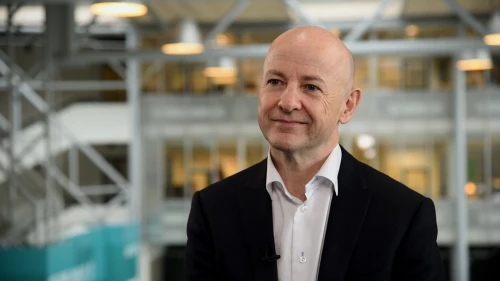Imagine a world in which digital giants have unconstrained access to hundreds of millions of individual bank accounts. Imagine that the giants unleash their brand, technology, data, and scale to bring new value propositions to these individual customers. Imagine that these giants are quickly followed by a multitude of agile new entrants.
The promise of the Payment Services Directive 2 (PSD2) is the creation of such a world by enabling new business models, emboldening new attackers, and fostering relentless innovation. There is some uncertainty about how things will actually play out, but the financial services industry should prepare for far-reaching competitive disruption. The opportunities will be significant as will be the pressure on banks and payment service providers to respond in a way that materially differentiates their customer experience and protects their revenues.
Stefan Dab, a senior partner and managing director at BCG and global leader of the firm’s transaction banking segment, spoke with Rupert Keeley, CEO of PayPal Europe, at the April 2016 Money 20/20 conference in Copenhagen about the impact of PSD2 and general trends in the payments industry.
Rupert, thank you for joining us and for sharing your perspectives on payments. I’d like to start with a question about PayPal. PayPal was created more than 15 years ago, basically to allow individuals to make transactions on eBay. Looking at the commercial world, which is changing quite dramatically with the digitization of commerce and the digitization of banking, how do you see the payments landscape evolving over the next few years and how do you see PayPal’s role in this landscape?
Like film and music, money is going digital. Just as we’re consuming media and music in different ways, we’re redefining and dealing with banks in different ways. We got used to remote channels, ATMs, and Internet banking, but things with mobile are changing very fast. The regulatory changes that are coming are going to accelerate that trend. We’re finding that consumers—all of us, you and I—are changing the way we conduct transactions with our financial services providers. We’re changing the way we conduct commerce. We buy and sell, and that really plays into PayPal’s sweet spot, particularly with our closed-loop payment network in which we have the relationship with the merchant and the consumer, or the consumer from P2P (peer-to-peer payments). As this world is redefined, we think that with our risk-management skills, with our technology skills, with our platform, and with our ability to partner with people that we are ideally positioned to make the most of this revolution that we’re seeing in commerce and personal finance.
In Europe, the Payment Services Directive 2, the famous PSD2, is providing tailwinds to third-party providers by allowing them access to bank accounts. How do you see the landscape evolving in this new regulatory environment? And what do you think are the prospects for PayPal in this new environment, which is opening up new opportunities?
Europe has led the world in many landmark and industry-shaping bits of regulation dating back to the e-payments directive, from which we’ve benefited in many ways in growing our business in Europe. We see the regulatory environment in Europe overall as being very positive. Of course, it creates this extra work and compliance burden, but we think it’s a very positive thing. Again, we think we’re very well positioned, operating from our base in Europe, to export and serve a growing number of customers across the 31 EEA (European Economic Area) states.
What concrete opportunities do you see in terms of new value propositions for consumers? What should consumers expect in terms of new services from merchants?
I think that what’s exciting about right now is that we’re in this revolution, a consumer-led technologically enabled revolution in terms of financial services and payments. Much of the most interesting innovation is where we’re seeing people collaborating and using open APIs (application program interfaces) and SDKs (software development kits) from different companies to create new experiences. We bought Braintree, which enabled developers to integrate payments into their apps. So that became a transactional app—an app in which conversion was good. It’s a great example. We see real opportunities to partner with other companies enabled by PSD2 to open up new experiences. We think that PSD2 is going to open up new opportunities. It will be a threat to those who aren’t alive to it and who don’t respond quickly, but we think it’s overall a good thing. Of course, the devil is in the detail, as in the EBA (European Banking Authority) Single Rulebook. The EBA has a very challenging role: trying to balance security with convenience and ease of use.
Security is a very critical element: there is tension between convenience and security. Do you have a vision for the future of authentication and authorization? Do you see technology providing solutions that are secure and easy? Do you see the new value proposition—which was login, password; very simple—transforming itself into other simple ways to transact?
PayPal’s core value proposition is to combine convenience with security. Our wallet is a closed loop. We, at the end of last year, had 179 million customers around the world—active customers in 203 countries. We are uniquely able, as a closed loop, to see both sides of the transactions. We have a relationship with the merchant and with the consumer. That gives us a great ability to monitor fraud because we know a lot about the merchant and a lot about the consumer. Fraud is a global phenomenon. It’s very hard if you are a standalone bank or card issuer or merchant to see fraud from where you are, but we have a wonderful opportunity to have a global perspective on that. Now, of course, consumers want to transact and transact securely—but also with convenience—often, with one hand on a mobile device. Consumers are driving what’s happening.
If I want to send a builder €8,000 for an extension, I want to make sure that I have a very secure way of doing that. Perhaps with more controls around it. If I’m ordering an Uber taxi, I just want to be able to have a one-click experience. We think we’re well placed to cater to both of those requirements, and I think the PSD2 gives us that flexibility. I would say that of the many assets that PayPal has, having a global view of the customer relationship and the transactions in our closed loop is one of our most valuable assets. I think it positions us very well to get the right balance between simplicity, low friction, ease of use, and high conversion with security for the merchant and the consumer.
Rupert, thank you for taking the time to share your perspectives with us on the global developments in payments. Thank you.
My pleasure.






